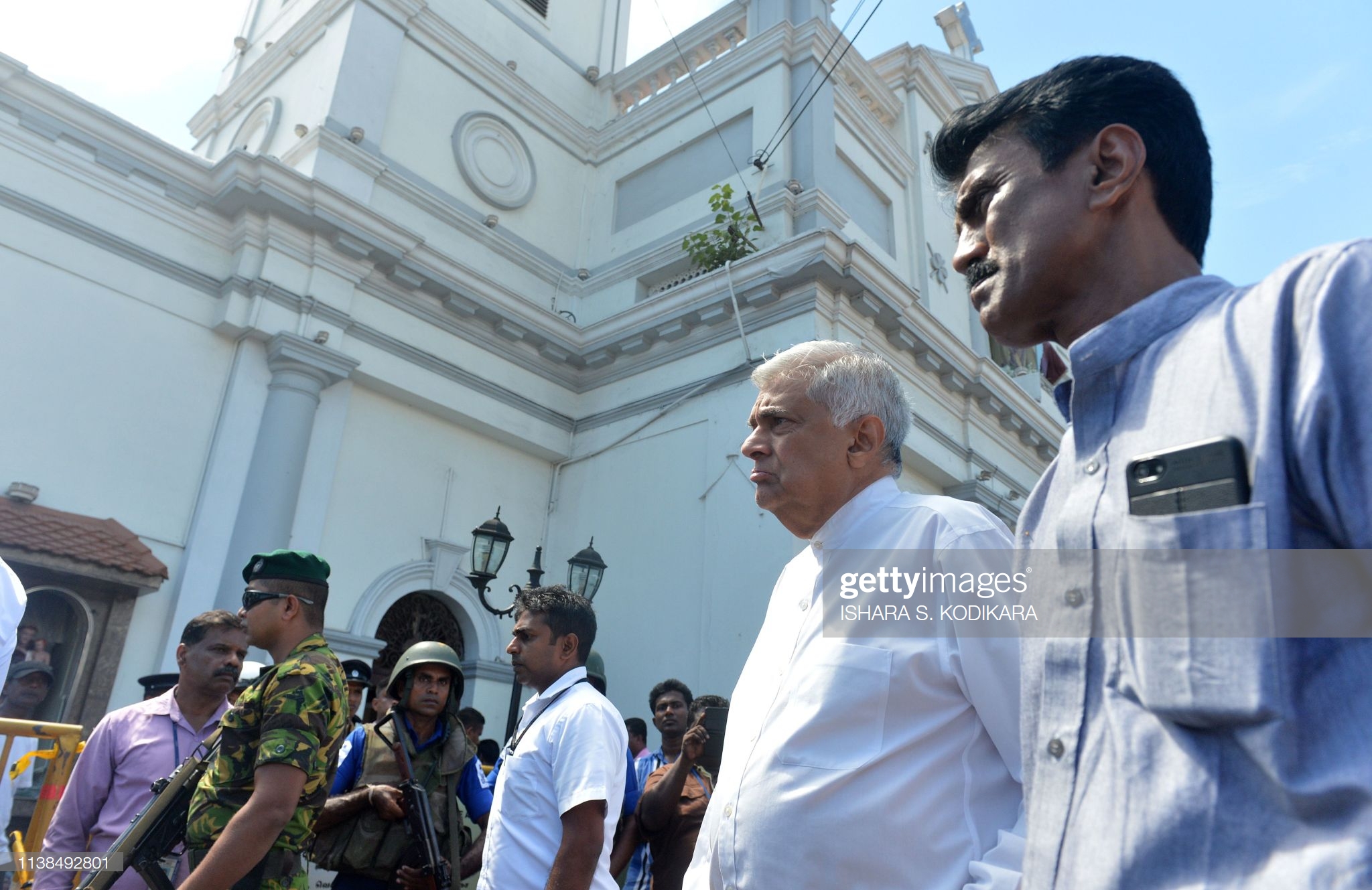May 25 2019 (LBO) - Over five years ago, residents of Colombo were regularly treated to a political satire based on the character Chaminda Pusswedilla. New editions of play were done on an almost annual basis, regularly attracting audiences that included almost every VIP in the country. Pusswedilla was a character loosely modelled after Sri Lanka's President at the time. The play also featured a character called Wickrama Nikamsinghe who was a political leader that could never win, and whom Puswedilla wanted to keep as the leader of the opposition forever.
The loser becomes the winner
Almost five years ago, Ranil Wickremesinghe was sworn in as Prime Minister for the 3rd time. He has subsequently been sworn in two additional times as his term has been interrupted for very short spells, one being due to parliamentary elections, and the other due to what can politely be termed a constitutional crisis.
Despite being branded as a perennial loser, Ranil Wickremesinghe has somehow found a way to win. Today, despite a constant chorus of negativity with regards to his political stature, he sits in two of the most important chairs in Sri Lanka. He is the Prime Minister of Sri Lanka and the Leader of the United National Party (UNP). The UNP is the party of Sri Lanka's first Prime Minister D.
S. Senanayake, and still today remains as Sri Lanka's most prominent political party.
A challenging term of office
Wickremesinghe's recent tenure as Prime Minister has not been easy. He has had to cohabit with a hostile executive President, who has been undermining him directly for quite some time. His response to his tenuous relationship with the executive has often been to say that coalition governments are not easy, but that he will try and find a way to cohabit and move forward.
It has been a messy tenure for the PM. An unsuccessful cohabitation between the UNP and the President has sent the economy into the doldrums. On top of that, Sri Lanka has recently been hit with one of the worst episodes of international terrorism the world has seen in since September 11, 2001. People are frustrated with politicians, and there seems to be a malaise permeating throughout the nation. The PM, however, is soldiering on despite the difficulties.
Presidential elections are near
The next Presidential election is coming on fast. The Chairman of the Elections Commission Mahinda Deshapriya has even given a range of dates when nominations are likely to be called for, and a date range for the election to be held. Barring a true black swan event, Sri Lanka will have a new President by January 8, 2020. If he isn't already, today's sitting President will fast become a political lame duck.
UNP leadership struggle
With the election approaching, there has been speculation bubbling about who the UNP would field as a candidate, and what electoral prospects he or she may have. Since the terror attacks, there have also been rumours of a leadership struggle developing in the UNP.
A recent New York Times article even featured a letter by a young UNP urban councillor, which was released to the media, demanding the resignation of Wickremesinghe as the leader of the UNP.
The urban councillor's party membership has since been suspended and the junior politician has seen no public signs of support from any senior members of the UNP.
Ranil Wickremesinghe has been through many leadership struggles during his tenure as leader of the UNP, and has repeatedly emerged victorious. Despite what his detractors may claim, he has strong support within the party.
Speaker Karu Jayasuriya has challenged him twice for the party leadership through a procedural vote in the working committee, and both times he was handily defeated despite much talk of the contrary. Despite Jayasuriya in the past openly contesting him for the leadership, the two men have been able to develop a cordial and effective working relationship. Karu Jayasuriya's political stature has increased significantly after the recent constitutional crisis where he is seen to have been one of the nation's foremost saviours of constitutional democracy.
Today there stands no public challenge to Wickremesinghe from any leader with stature in the UNP.
The fact that the New York Times would highlight the letter of a disgruntled political non-entity as a challenge to Wickremesinghe's leadership is odd to say the least.
Ranil's political future
Ranil Wickremesinghe is firmly the Prime Minister and the leader of the UNP. Electorally he is likely to garner an unprecedented share of the minority vote in a Presidential election. With tensions running high among religious communities, his voice has always been one of peace and stability. Despite what many armchair pundits claim, he is very much electable.
Voters who supported the UNP in the last Presidential election are disappointed with the results of the January 8th 2015 electoral mandate. However, the January 8th election has not been a total failure.
Despite the destructive actions of some, Sri Lanka has made a significant transition to a more free and open society.
The Prime Minister is the high level political leader that deserves the most credit for this important achievement. Wickrama Nickamsinghe is not dead yet.

